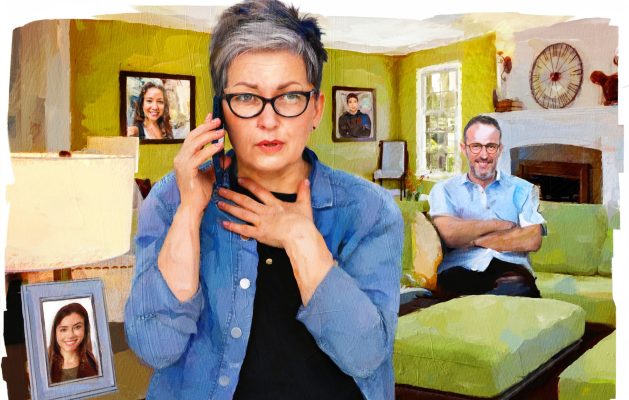Echoes From The Past – Episode 01
Over the past few years, Helen Malcolmson had faced greater challenges than this. She stood on the gritty doorstep of the soot-stained building, looking up at the dull brass lettering of “The Glasgow Tribune”. Gathering her courage, she hitched up her long dress and strode determinedly through the entry doors into the gloom and noise of a huge room, full of busy reporters hunched over typewriters.
“Miss? Are you looking for somebody?”
Helen turned to find an office boy, holding a sheaf of newly typed pages.
“The editor, please. Mr Forbes.”
“Does he know you’re coming?”
“Yes, he told me to be here for two p.m. I’m three minutes early.Helen Malcolmson.”
She waited, clutching her handbag, her heart beating madly. This was the career she had chosen for herself, the male bastion she had to storm as one of the soldiers in the suffrage army, returning to their own battle now that the war was over.
“You’ve to come in.” It was the office boy again. He led her towards a scruffy partition in the corner of the room.
“Dinnae worry . . . his bark is worse than his bite.”
Drawing a deep breath to steady herself, Helen stepped into the editor’s den. Behind her, the office boy stood to admire her slim shape, until he was hit by a rolled-up paper ball.
“Scoot!” the reporter said. “Come back and stare when you’re grown up.”
Inside the partition’s peeling walls, Helen found herself in the steady gaze of a man in his fifties. Slowly, the editor laid down sheets of edited typing and reached for his pipe.
“Miss Malcolmson?” he asked, filling its bowl from his tobacco pouch.
“Helen,” she replied.
“Miss Malcolmson will do for now.” A match was sparked, and the editor disappeared behind a cloud of blue smoke, his eyes still on her. Waving the smoke aside with a broad hand, he gestured to the wooden chair in front of his desk.
“Right,” he said. “Tell me what you’ve been doing. Keep it short and simple. Treat me like a reader you have to hold before he flips back to the sports pages.”
The voice was brusque, but she sensed a twinkle in the grey eyes. That steadied her. She found herself relaxing as she described how she had worked as a volunteer nurse with an all-female field hospital at the Western Front. A radically experimental forward unit, one of Elsie Inglis’s Scottish Women’s Hospitals, bringing surgery to the wounded before the filth of the battlefield corrupted wounds.
“Elsie Inglis?” Forbes growled. “Wasn’t she the woman the War Office told to go home and knit socks and leave the war to men?”
Helen smiled. As she did so her whole face lightened and came to life.
“She ignored them Elsie didn’t suffer fools gladly,” she replied.
“From what I heard, she didn’t suffer fools at all. Not surprising, given how she had to fight the medical establishment to qualify as one of the first women doctors and surgeons. Did her crazy idea of forward hospital units really work?”
“We got to the wounded before blood loss or infection weakened them and lost fewer men and limbs than military hospitals which were days from the Front.”
“But at the risk of working inside the range of German guns. What made you do it volunteer to be a VAD out there?”
“To show we could do the same work as men, given the chance.”
“‘We’ being?”
“The suffragettes. Putting aside our dispute with Government to do what we could to help the war effort.”
“And now you’re out to start your other war again,” Forbes retorted. “Even after we’ve given you the vote?”
“That you haven’t!” Helen declared. “Only to married women over thirty-five years old, in the hope that their husbands will tell them how to vote.”
Forbes grinned.
“Has your husband tried?”
“I’m not even twenty-five. And I don’t have a husband.”
Forbes relit his pipe. Smoke swirling round his head, he picked up a letter she recognised as being in her own handwriting, and the sample of written work she’d enclosed. She watched his fingers flick over a few pages then push her letter aside.
“This chance,” he said. “It will be sink or swim.”
“I understand.”
He glowered.
“I can’t send you to a tramcar accident in case you faint. I can’t put you on a court case for fear you’re shocked. What on earth can I do with a woman journalist?”
Helen braced herself.
“Give her a chance to prove herself,” she said. “Then be the first Glasgow newspaper maybe even the first in Britain to have a woman reporter, and set an example for the others.”
The steady eyes remained locked on her.
“Right,” Forbes said. “Write me two thousand words on the history of smuggling on the east coast of Scotland. A feature. No waffle, no poetry. Hard facts, based on research and interviews. Some blood and thunder, to keep the readers happy. It was a rough old trade. But not a word that isn’t needed.”
Helen gulped.
“How long have I got?”
“Two days, if you were one of my boys. You’re not. You haven’t even started to learn. I want this to be an honest chance, so have your copy on my desk by a week on Friday. That’s nine days.”
“You won’t regret this, Mr Forbes,” she said.
“I’d better not,” he growled. “And the name’s Jake.”
“Helen,” she said, holding out her hand.
He clasped it in a firm grip.
“Now, get out there and prove me wrong, Helen,” he ordered.
As she walked out of the office in a daze, the assistant editor came in.
“You’re mad, Jake,” he said. “She’ll never make it.”
Forbes struck another match.
“Think not?” he asked. “Then I’ve half a crown here that says I’m right. Are you ready to put your money where your mouth is?”













